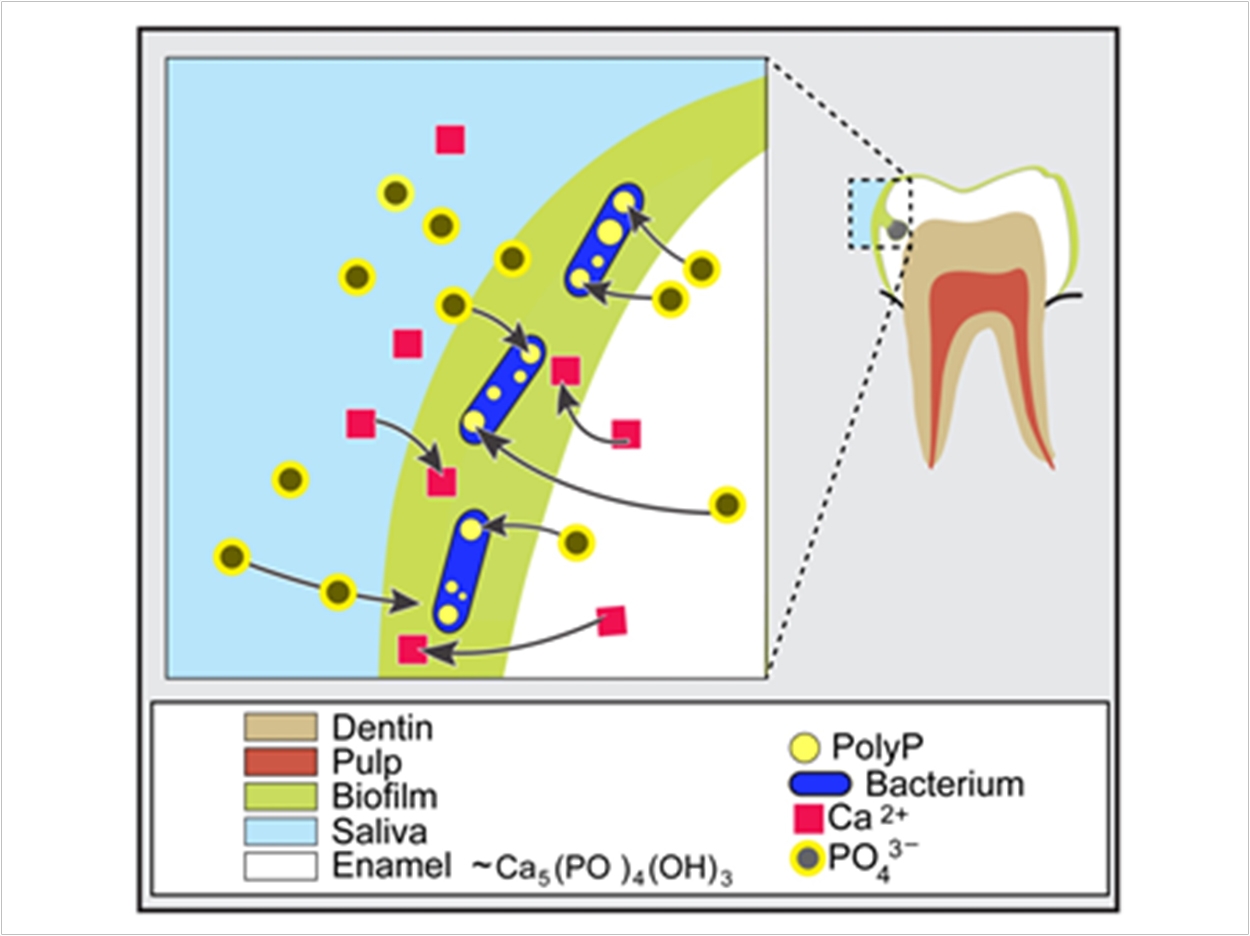
Bacteria that absorb and accumulate phosphate from saliva may play a role in tooth decay, reports the University of Minnesota. Researchers there note that dental plaque contributes to dental decay by removing phosphate from the mouth and altering the chemistry of saliva. This is significant, they explain, because previous research has focused on solely on the role of bacteria in tooth decay through the production of acids from sugars.
Knowing that low concentrations of soluble mineral ions such as phosphate in the mouth can accelerate dental decay, researchers from the School of Dentistry’s Division of Pediatric Dentistry and the Department of Earth Sciences at the College of Science and Engineering asked if oral bacteria themselves can substantially change mineral ions in their local surroundings.
The question was sparked by recent research in marine environments that shows bacteria can cause calcium phosphate minerals, similar to the makeup of the mineral portion of human teeth, to form or dissolve through the absorption or the release of phosphorous from inside their cells. These bacteria store the phosphorous as a long-chain polymer known as polyphosphate.
The new study found that dental plaque contains abundant bacteria that absorb phosphate from their surroundings and store it inside the cell as polyphosphate, a process that may exacerbate tooth decay. The researchers believe it could help shape the development of future oral hygiene products or treatment approaches to reduce tooth decay.
“Future work will need to be conducted to understand the factors that control when and why these bacteria take up phosphate and how their presence impacts overall oral health,” said Robert Jones, DDS, PhD, associate professor with the Division of Pediatric Dentistry.
“I am hopeful that our collaboration could lead to new and alternative approaches to combating and managing oral disease,” said Ashley Breiland, lead author and researcher with the Department of Earth Sciences.
The study, “Polyphosphate-accumulating Bacteria: Potential Contributors to Mineral Dissolution in the Oral Cavity,” was published by Applied and Environmental Microbiology.
Related Articles
Gel Could Regrow Enamel and Eliminate Pain
Cell Therapy Regenerates Maxillofacial Bone
Pediatric Dentistry Should Focus on Caries Prevention












